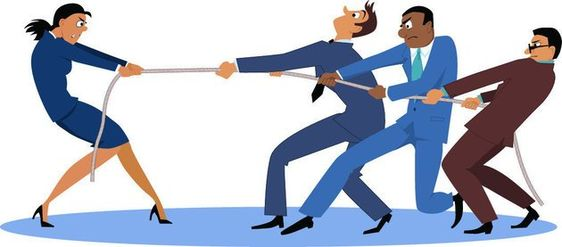Workplace Inequalities – Socioeconomic Disparities and Classism

Karl Marx said that class membership was based on economic factors. Because social characteristics like class, gender, and ethnicity can affect a person's chances of having a good life, they aren't given out equally to everyone and everyone in groups. People in higher social classes are more likely to get good health care and decent housing than people in lower social classes. Life changes when people have different wealth, income, power or positions than others. Reforms in areas such as education and employment have addressed parts of gender inequality throughout the previous 40 years. Governments, for example, have passed anti-discrimination laws, like the Equal Pay Act of 1970, to make sure that women and men get paid the same.
Over the last 40 years, changes and policies have been made to reduce ethnic inequality in areas like education, employment, and the criminal justice system. When it comes to equality and diversity, many businesses have equal opportunity policies; the 1976 Race Relations Act made ethnic discrimination illegal; the Equality and Human Rights Commission has the power to enforce equality laws and shape public policy; and awareness of institutional racism has grown.
According to sociologists, age is made up by people. The historical and crosscultural variances in age expectancies are evidence of this. Older people have different statuses in different cultures. Getting old is seen as something to be afraid of in some cultures while some cultures see old age as something to look forward to, and older people have a lot of social power.
When someone is treated differently because of their age, this is called ageism.
There is a link between money and one's life chances. It has an effect on how people make decisions and how society sees them, especially when it comes to hiring for a job and how people see them. People who come from rich families are more likely to get the best jobs with the best chances and opportunities. Most people who are poor don't have these options.
The sociologist Lauren Rivera says hiring managers "unconsciously discriminate against applicants from working-class backgrounds because they hire for cultural fit." This means that hiring managers look for employees who will fit in with the company's culture and who will be able to spend time with them.
People from a certain social class or cultural background are more likely to be hired by businesses.
https://goizueta-effect.emory.edu/episodes/building-an-equitable-workplace-why-social-class-should-be-a-critical-component-of-your-diversity-strategy
https://courses.lumenlearning.com/boundless-sociology/chapter/the-impacts-of-social-class/ Employers were becoming more deliberate in how they used DEI methods in the work place. People from different social groups are often overlooked, especially those at the bottom of the socioeconomic ladder. As a matter of fact, even though it isn't as obvious as color or gender it is very important, even though it isn't as obvious. Education is an important part of social class both directly and indirectly. People from higher socioeconomic groups are more likely to be able to afford to go to more well-known schools and, as a result, get better educations. This is due to wealth distribution. People who get more education are more likely to get high-paying jobs and make more money in the long run. In the same way that education and social class are linked, there is a lot of stratification in the way people go to school. Workplace inequality is a global challenge. While it is less in some places, it is common and rampant in some other places. To achieve equality in the workplace, we want more diverse job applicants, we should fight for more inclusive recruiting methods, standardized interviews with the same way to hire more diverse candidates, and legislation.
Working-class, middle-class, and upper-class people all think and act in different ways, which makes it more difficult for working-class people to take advantage of educational and job opportunities that would help them move up the social ladder and improve their material circumstances. At a time when many countries are becoming more unequal in the economy, this lack of mobility makes it hard for people to stay together. When people see evidence that inequality is getting worse, the majority of people think it's bad and say they'd support government efforts to get rid of it.
Inequality is esencial to mankind, we cant avoid being inequal, because we are imperfect and therefore unable to reach a real equality. As a person living on a socialsm country, i think i can relate and say beyong noone else how "force the equality" by law and ways, ends up becoming a disaster and with hunger and suffering at the end of it.
In thirt world countrys this is no only a reality, but sometimes a desperate call of action to some people, ending on unending revolutions, reestructuring and other stuff. Great post :)